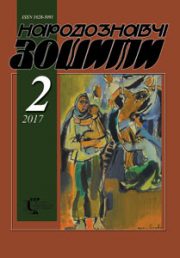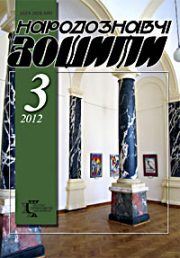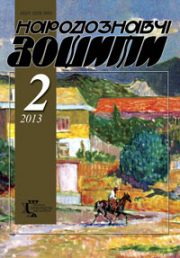The Ethnology Notebooks. 2021. № 4 (160), 800—809
UDK930.2:[94(477)”9/17″:327]
DOI https://doi.org/10.15407/nz2021.04.800
INTERNATIONAL POLITICS OF UKRAINIAN COSSACKS IN THE WRITINGS OF PANTELEIMON KULISH
KOKOSH Artem
- PhD in history and international relations,
- Ukrainian Free University
Abstract. The article timeliness lies in new methods of studying the Ukrainian Cossacks’ effect on the policy of Eastern Europe. The paper describes main periods in history of Ukraine from Rus to the Cossacks. Naming Ukrainians «the Ukrainian nation», «the Little Russian nation», «the Southern Rus tribe», the historian connected them to neither Poles nor Russians. Kulish started the history of Ukraine, «called Rus in old times», from the times of Rus. The Tatars conquest of Rus territories was one of the most difficult periods for Ukraine. The Ukrainian tradition began coming to life again in Lithuanian times. Orthodox, the Rus language and Ukrainian traditions in a new state allowed calling it «Lithuanian Rus». However, the situation changed again during the Polish period that began in 1340 for Galicia and in 1569 for the rest of territories. The Cossacks began to represent Ukraine in connection with other states since that time. The historian took into consideration their structure and centers, connections with Polish king, Moscow tsar and Tatars sultan, creating the arena for international affairs. Panteleimon Kulish described the main periods of history of Ukraine, paying his attention to the Cossacks. To his mind, Ukrainian past crossed history of other countries that had incorporated Ukrainian territories for some time. However, in spite of that fact the Ukrainians did not call themselves by one ethnonym, did not have their own state for a long time and was not active enough in their policy Kulish could separate the history of Ukraine from Polish and Russian. He proved their originality and independence whose history started in Rus, continued in Lithuanian and Polish periods, expressed in the Cossacks and then to contemporary of the XIX century. Based on the historical works of Panteleimon Kulish the paper describes the Cossacks’ place and role in the international arena.
Keywords: Cossacks, the Polish-Lithuanian Commonwealth, Moscow, Porte.
Received 12.08.2021
REFERENCES
- Kulish, P. (1888). The Separation of Little Rus from Poland: in 3 vol. (Vol. 1). Moscow: University Typography, Strasn. Boulevard [in Russian].
- Kulish, P. (1856). Notes on Southern Rus: in 2 vol. (Vol. 1). Saint Petersburg [in Russian].
- Franko, O. (2005). The Ethnic Meaning and Popularization of Terms «Ukraine», «the Ukrainians» in Program and Publicistic Works of Cyril-Methodius Brotherhood Members. Na krutoshylah istorii-2. «Chas zbyraty kaminnia» (Pp. 62—69). Kyiv: Editing office of European University [in Ukrainian].
- Kulish, P. (2012). The Book of the Ukrainian People’s Deals… Selected Works. Kyiv [in Ukrainian].
- Kostomarov, M. (2007). Two Rus’ Peoples. Osnova, 3, 33—80 [in Russian].
- (1860). P.A. Kulish’s Stories: in 4 vol. (Vol. 2: Aleksei Odnorog). Saint Petersburg [in Russian].
- Kulish, P. (1874). The History of the Reunification of Rus: in 3 vol. (Vol. 1). Saint Petersburg: Obshchestvenaia polza [in Russian].
- Kulish, P. (1877). The History of the Reunification of Rus: in 3 vol. (Vol. 3). Saint Petersburg: Obshchestvenaia polza [in Russian].
- Kulish, P. (1874). The History of the Reunification of Rus: in 3 vol. (Vol. 2). Saint Petersburg: Obshchestvenaia polza [in Russian].
- Kulish, P. (1888). The Separation of Little Rus from Poland: in 3 vol. (Vol. 2). Moscow: University Typography, Strasn. Boulevard [in Russian].
- Kulish, P. (1843). Mykhailo Charnyshenko, or Little Rus Eighty Years Ago (Pp. 89). Kyiv [in Russian].
- Kulish, P. (1946). Tale of the Ukrainian People. Saint Petersburg [in Russian].
- Kulish, P. (1888). The Separation of Little Rus from Poland: in 3 vol. (Vol. 3). Moscow: University Typography, Strasn. Boulevard [in Russian].
- Kulish, P. (2005). The Life of Kulish. Kyiv: Ukrainskyi svit [in Ukrainian].






